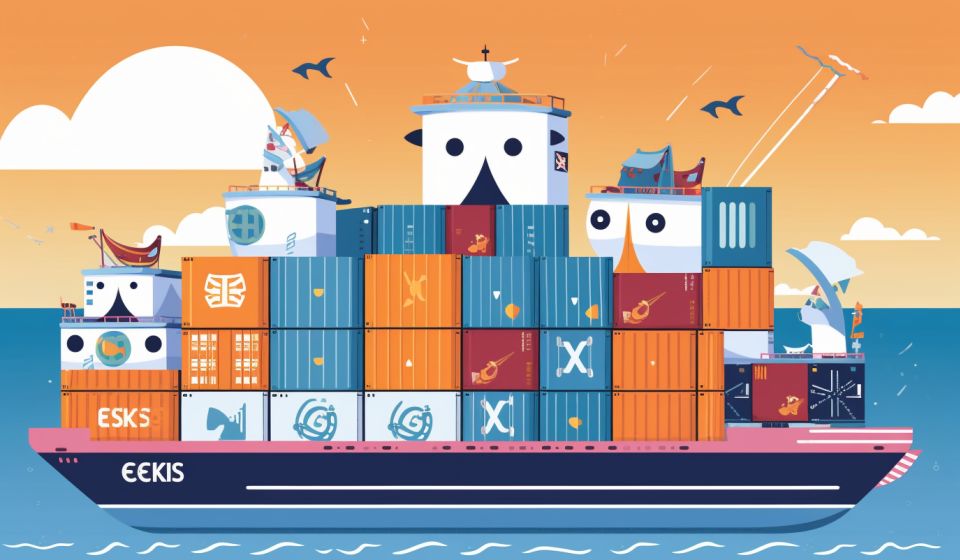Navigating the Container Landscape on AWS: A Guide to Your Deployment Options
Written on 2023-03-29 by Adam Drake - 6 min read

When you come to deploying your application there are many choices out there. One such choice is AWS. In this article you can find out the different options available on AWS - AWS ECS, AWS Fargate, AWS EKS, EC2
AWS ECS
Amazon EC2 Container Service (ECS - Elastic Container Service) is a highly scalable, fast, container management service that makes it easy to run, stop, and manage Docker containers on a cluster of EC2 instances. With Amazon ECS, customers can launch and stop container-enabled applications with simple API calls, allowing them to quickly and efficiently respond to customer demand.
AWS Fargate
AWS Fargate is a serverless compute engine for containers that allows customers to deploy and manage containers without having to manage the underlying EC2 infrastructure. It eliminates the need to provision, configure, and scale clusters of virtual machines, allowing customers to focus on building and running their applications in the cloud. Fargate also simplifies the security configuration of applications running in the cloud, making it easier to manage and secure containers.
AWS Fargate can do the following for you:
- Launch container with Fargate
- Analyses your container
- Provisions a server on demand
- Deploy and run container on server resources
AWS ECS with AWS Fargate
This is AWS all the way so your infrastructure and containers are managed by AWS. This means you only need to manage your application. There are quite a few advantages of going this route.
- Reduced operational overhead: With AWS Fargate, you no longer need to manage the underlying infrastructure, allowing you to focus on building and deploying applications.
- Cost savings: With no servers to provision and manage, you pay only for the CPU and memory resources that your applications actually use. You don’t need to worry about expensive server costs or maintenance.
- Scalability: AWS Fargate makes it easy to scale up or down based on demand, and you don’t need to manage any additional infrastructure to do so.
- Improved security: With AWS Fargate, you don’t need to manage your own security, as the managed container environment is already protected from the underlying infrastructure.
- Flexibility: With AWS ECS, you have the flexibility of deploying both long-running processing services as well as short-term batch processing jobs.
However, with anything in life there are also some disadvantages. These include:
- Everything is specific to AWS: If you ever decide to migrate off AWS then it will be difficult as your whole infrastructure is very much tied to the way AWS does things.
- It's good for less complex applications: However, when your application starts increasing in complexity there are maybe better options out there.
- Limited support for legacy applications: AWS Fargate only supports applications that are packaged as Docker containers, which may limit the ability to deploy certain legacy applications.
AWS EKS
AWS EKS (Elastic Kubernetes Service) is a fully managed, scalable, and secure Kubernetes service by AWS. It allows developers to deploy, manage, and scale containerized applications easily using Kubernetes without the need for manual installation, updates and cluster management. If you are not sure what Kubernetes is you can find out more on their site.
EKS runs Kubernetes control plane instances across multiple Availability Zones to ensure high availability and fault tolerance, while automatically patching and upgrading them to the latest version. It is an alternative to ECS.
Advantages of using EKS
There are definitely some advantages to using EKS instead of ECS. Amongst these advantages are:
- It uses K8 (thats short for Kubernetes! What the cool kids use...) APIs: If you know these already it's easy to get started.
- K8 is open-source: There are many advantages to open-source code such as it fosters innovation, it's cost-effective and it's customisable.
- Easier to migrate to another platform: If you decide to change cloud providers, say to Azure or Linode for example, they as it's using K8 it will be easier to migrate than if you were using ECS. However, you do need to bear if mind that if you are using other AWS services alongside EKS then this could introduce some complexity.
- Large Community: Community is very integral to the success of any library or framework in the coding world. K8 has a large community and this brings great benefits such as Helm Charts.
The EKS service integrates seamlessly with other AWS services and tools like ELB (Elastic Load Balancing), RDS (Relational Database Service), and IAM (Identity and Access Management), enhancing application performance, security, and scalability. If you're going to go down the AWS route you do have a whole wealth of services to choose from.
Different options with EKS
There are a variety of options you can take when using EKS with AWS. These include:
- EKS with EC2 instances (Self managed): You need to manage the EC2 instances yourself.
- EKS with Nodegroup (Semi managed): Creates, deletes EC2 Instances for you, but you need to configure it.
- EKS with AWS Fargate (fully managed): Maybe the easiest to get started with but it comes with certain limitations.
Whats the best option?
Like anything in life - it depends. It depends on your specific requirements, familiarity with container orchestration, and the desired level of control over your infrastructure.
AWS ECS is definitely easier to set up and operate if you are already familiar with the AWS ecosystem. However, AWS EKS is based on the industry-standard Kubernetes so this comes with advantages too.
In summary, choose AWS ECS if you are already familiar with the AWS ecosystem and prefer ease of use, better integration with other AWS services, and lower costs. On the other hand, choose AWS EKS if you have experience with Kubernetes and need advanced container orchestration features and greater flexibility in managing your applications.
Subscribe to My Weekly Updates on Medium!
Enjoyed This Post?
If you found this blog post helpful, why not stay updated with my latest content? Subscribe to receive email notifications every time I publish.
If you're feeling really generous you can buy me a coffee. (Btw, I really like coffee…)
What You'll Get
- Exciting Discoveries: Be the first to know about the latest tools and libraries.
- How-To Guides: Step-by-step articles to enhance your development skills.
- Opinion Pieces: Thought-provoking insights into the world of frontend development.
Join Our Community
I live in the vibrant city of Prague, Czech Republic, with my family. My blog is more than just articles; it's a community of like-minded developers who share a love for innovation and learning.
About me
I'm a passionate Frontend Developer specialising in React and TypeScript. My professional journey revolves around exploring and mastering new tools and libraries within the JavaScript ecosystem.

Written by Adam Drake
Adam Drake is a Frontend React Developer who is very passionate about the quality of the web. He lives with his wife and three children in Prague in the Czech Republic.
Adam Drakes Site © 2025